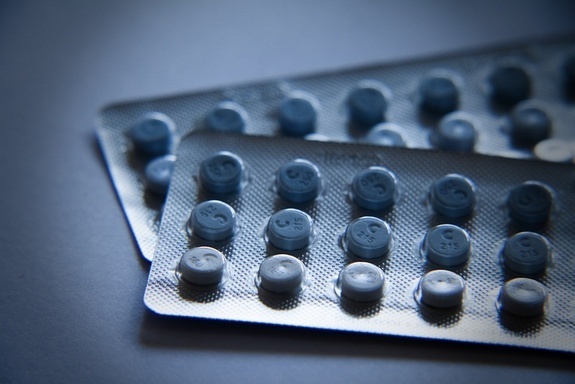Beyond Birth Control: 5 Conditions 'The Pill' Can Help Treat

New rules from the Trump administration issued on Friday (Oct. 6) allow some employers to opt out of covering birth control for their employees, if they have religious or moral objections to contraception.
The new rules will allow more companies to seek an exemption to the "Obamacare" requirement that employers cover contraceptive services. "This provides an exemption, a limited one, for those with religious or moral convictions implicated by the contraceptive mandate," an official for the U.S. Department of Health and Human Services (HHS) said in a news briefing, according to Vox.
But birth control medications are used for reasons that go far beyond simply preventing pregnancy. For example, a 2011 study found that 14 percent of women who use a hormonal birth control pill, or 1.5 million women, take the medication exclusively for noncontraceptive reasons. Among teens, that percentage is higher — about one-third of women (33 percent) ages 15 to 19 who use a birth control pill do so for reasons other than preventing pregnancy. In addition, an estimated 762,000 women who take a birth control pill (7 percent) have never had sex, according to the study, which was conducted by the Guttmacher Institute, a reproductive health research organization. [Birth Control Quiz: Test Your Contraception Knowledge]
Many women also take a birth control pill for both contraceptive and noncontraceptive reasons. The study found that, overall, nearly half of birth control pill users (49 percent) use the pill for more than one reason.
Here are five conditions that birth control medications can help treat:
Menstrual cramps
According to the 2011 study, 31 percent of birth control pill users take the medication to reduce the severity of menstrual cramps or menstrual pain. Birth control pills contain hormones that thin the lining of the uterus, which can result in shorter, lighter periods that are less painful, according to Bedsider, an online birth control support network that is operated by a nonprofit organization, The National Campaign to Prevent Teen and Unplanned Pregnancy.
Irregular periods
Irregular periods can refer to a number of different problems, including missed periods, periods that are longer than seven days, periods that are much heavier than usual and periods that are less than 21 days apart or more than 35 days apart, according to the Cleveland Clinic. Some women can use a hormonal birth control pill to help regulate their menstrual cycles, or control heavy bleeding. According to the 2011 study, about 28 percent of birth control pill users take the medication for menstrual regulation.
Sign up for the Live Science daily newsletter now
Get the world’s most fascinating discoveries delivered straight to your inbox.
Acne
About 14 percent of birth control pill users take the medication to treat their acne, according to the 2011 study. Other studies have found that women with acne can improve the condition by taking birth control pills that contain estrogen and a progestin (so-called "combined hormonal birth control pills"). Three types of birth control pills are specifically approved by the Food and Drug Administration for the treatment of acne: Estrostep, Ortho Tri-Cyclen and YAZ, according to Bedsider.
Endometriosis
Endometriosis is a condition in which the tissue that lines the inside of the uterus grows outside of the uterus, causing serve pain during menstruation. Hormonal birth control methods help control the buildup of endometrial tissue each month, and these medications may reduce or eliminate the pain of endometriosis, according to Mayo Clinic. About 4 percent of birth control pill users take the medication to help treat endometriosis, according to the 2011 study.
Premenstrual syndrome
Premenstrual syndrome, or PMS, is a group of symptoms that begin one to two weeks before a woman's period, and include breast tenderness, bloating, food cravings, irritability, mood swings and depression, according to the NIH. For some women, these symptoms are severe enough to interfere with their daily lives. Hormonal contraception medications stop ovulation (the release of an egg from the ovary), which may bring relief from PMS symptoms, according to Mayo Clinic.
Original article on Live Science.

Rachael is a Live Science contributor, and was a former channel editor and senior writer for Live Science between 2010 and 2022. She has a master's degree in journalism from New York University's Science, Health and Environmental Reporting Program. She also holds a B.S. in molecular biology and an M.S. in biology from the University of California, San Diego. Her work has appeared in Scienceline, The Washington Post and Scientific American.
Man gets sperm-making stem cell transplant in first-of-its-kind procedure
'Love hormone' oxytocin can pause pregnancy, animal study finds









